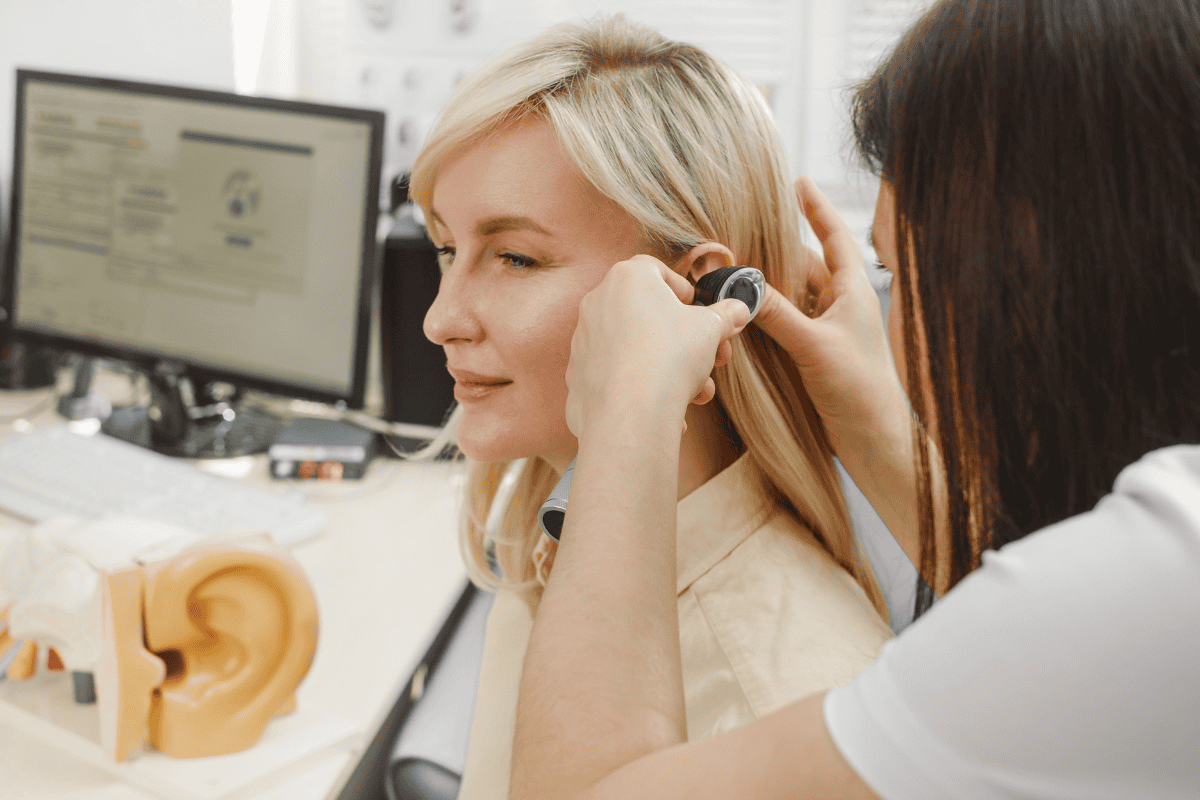- Do Women Experience Hearing Loss the Same Way as Men? - May 15, 2025
- Why are hearing aid battery packages so hard to open now? - May 1, 2025
- Hearing Aids: Listen Up and Choose Wisely - December 3, 2024
Hearing loss is a widespread health issue that affects millions of people globally, yet it often remains underrecognized, particularly among women. While hearing impairment is commonly associated with aging, research reveals that women may experience hearing loss differently than men, with distinct causes, symptoms, and health implications. Understanding these nuances is essential for early detection, effective management, and improved quality of life.
Unlike men, who typically develop high-frequency hearing loss due to noise exposure or age, women often retain better hearing sensitivity in the higher frequencies for a longer time. However, they may still experience hearing issues due to genetic factors, hormonal changes, and certain medical conditions. For example, fluctuations in estrogen levels during menopause have been linked to auditory changes, potentially contributing to gradual hearing decline. Autoimmune inner ear disease, which is more prevalent in women, can also lead to sudden or progressive hearing loss.
Pregnancy presents another unique factor. While rare, some women experience temporary hearing loss during pregnancy due to increased fluid retention, hormonal shifts, or complications like preeclampsia. Additionally, women are more likely than men to suffer from conditions such as otosclerosis—a disorder that affects the bones of the middle ear and can impair hearing.
Despite these challenges, women often delay seeking help for hearing loss. This hesitation may be rooted in social stigma, lack of awareness, or underestimation of symptoms. Unfortunately, untreated hearing loss can significantly affect a woman’s overall health and well-being. Studies have linked it to cognitive decline, social isolation, depression, and even an increased risk of falls.
The good news is that early detection and treatment can make a substantial difference. Regular hearing screenings—especially for women over 50—are crucial for identifying issues early. Modern hearing aids and assistive technologies are discreet and effective, offering significant improvements in hearing clarity and communication.
Women’s unique health needs should be considered when designing treatment plans. Hormonal influences, coexisting medical conditions, and lifestyle factors all play a role in hearing health. Hearing providers should take a comprehensive, personalized approach to diagnosis and care.
For this Mother’s Day, if a woman you love is experiencing hearing loss, gently raise awareness. Encouraging open conversations and destigmatizing the use of hearing aids can help women feel empowered to seek help. With proper attention and support, women facing hearing loss can continue to lead vibrant, connected lives.
The beginning of any journey begins with the first step. When it comes to hearing, that first step is getting your hearing evaluated. Call Welsch Hearing Aid Co. to schedule your evaluation at 920-452-0213. Look for our ad in The Plymouth Review to receive a $10 discount on your evaluation.

